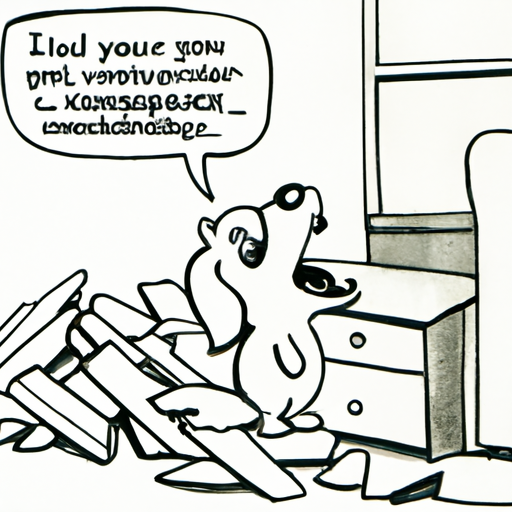As a caregiver to a new puppy, you have embarked on a journey filled with joyous moments and inevitable challenges. One of these challenges is your puppy’s teething phase, which might leave you wondering: when do puppies teeth the worst? This comprehensive guide will help you understand the timeline, signs, and tips to manage this crucial phase in your puppy’s life.
Understanding the Puppy Teething Timeline
Your puppy’s teething phase is a natural process that begins when they are around 2 to 3 weeks old and continues until they are about 6 months old. Here’s a brief snapshot of the timeline:
- 2-4 weeks: Deciduous or ‘baby’ teeth start to appear.
- 3-6 months: Baby teeth start to fall out, and permanent teeth begin to grow.
- 6-7 months: Most puppies should have all their 42 adult teeth by this age.
During this period, the teething process can be quite uncomfortable for your puppy, with the worst of it typically occurring between the 3rd and 6th month.
Recognizing the Signs of Teething
During the teething phase, your puppy may exhibit several behaviors and symptoms. These can include:
- Increased chewing
- Drooling
- Changes in eating habits
- Swollen gums
- Irritability
Puppies chew more during teething to alleviate the discomfort. So, if your generally mild-mannered puppy suddenly turns into a chewing machine, it’s likely they are teething.
How to Soothe Teething Pain
Teething can be a challenging time for both you and your puppy. However, there are several ways to soothe their discomfort:
- Chew Toys: Provide a variety of chew toys to help ease the pain and keep them from chewing on inappropriate items.
- Cold Treats: Frozen carrots or ice cubes can provide relief to a teething puppy’s sore gums.
- Puppy Teething Gels: These can be applied to the gums to numb the pain.
Preventing Potential Problems
Teething is a natural process, but it’s essential to monitor your puppy to prevent potential problems such as:
- Retained Baby Teeth: If your puppy’s baby teeth don’t fall out to make way for adult teeth, it can lead to dental problems. Consult your vet if you notice any retained baby teeth.
- Damage from Chewing: Puppies can harm their teeth if they chew on hard objects. Always supervise your puppy and provide safe chew toys.
Caring for Your Puppy’s New Teeth
Once your puppy has all their adult teeth, it’s time to establish a dental care routine. This can include:
- Regular brushing using a puppy-friendly toothpaste
- Dental chews and toys designed to clean the teeth
- Regular check-ups with the vet
Professional Dental Care for Puppies
Professional dental care is an essential part of your puppy’s overall health. Your vet can perform a thorough cleaning and check for any potential dental problems. Regular professional cleanings can help prevent future dental disease and tooth loss.
FAQ
1. When do puppies teeth the worst?
Puppies typically teeth the worst between 3 and 6 months of age when their adult teeth are coming in.
2. How can I soothe my teething puppy?
You can soothe a teething puppy by offering chew toys, frozen treats, and applying puppy teething gels.
3. When should I start brushing my puppy’s teeth?
You should start brushing your puppy’s teeth as soon as they have all their adult teeth, usually around 6 to 7 months of age.
4. What if my puppy’s baby teeth don’t fall out?
If your puppy’s baby teeth don’t fall out, consult your vet as this can lead to dental problems.
Remember, as a caregiver, your role is vital in navigating your puppy through this challenging phase. With patience, understanding, and proper care, you can help your puppy transition smoothly through their teething phase.



